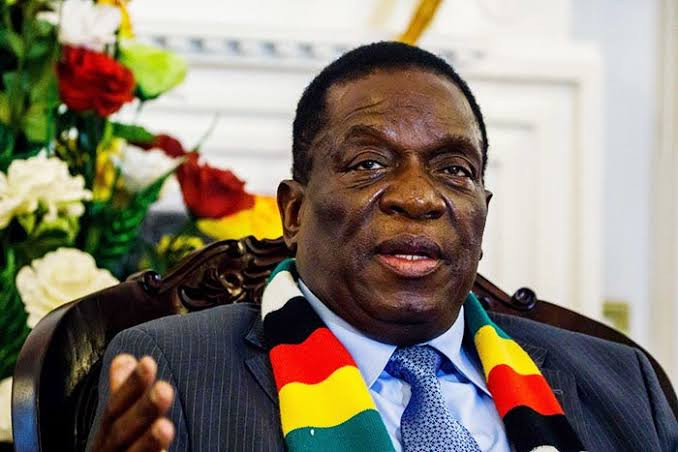
corruptionwatch:WITH TAWANDA MAJONI
Up to now, no one seems to be questioning the increasing tendency by governments, particularly in Africa, to militarise responses to Covid-19.
It could be that people are still in a state of confusion and are grappling to understand what, exactly, is happening. Which means one or two things for sure.
People just don’t have adequate information regarding how to manage disasters in the era of the coronavirus. Or, they haven’t become sufficiently adapted to the crisis to think about it critically.
In Zimbabwe, you hear the president telling people, like he did late last week, that the “security forces” would coordinate farming processes to ensure that there is enough food production and distribution throughout the country during these scary times. Not only that. He put Vice President Constantino Chiwenga, an ex-general, at the centre of the anti-coronavirus fight just hours after his return from China.
There is an unsettling contradiction here. A cholera outbreak killed more than 4 000 people in 2008 in a short space of time. Responses to that largely social — but also economic — problem weren’t militarised. Yes, the army got involved manning hospitals and the like, but it didn’t lead the response strategy. The appropriate agencies, among them relevant government departments and the development community, did that.
So why is the militarisation of an epidemic becoming a darling among African governments, most of which you wouldn’t say have a good reputation managing democracy? Well, this is a rhetorical question, somewhat. The point is, there is such a big yawn in the flow of information regarding the management of the coronavirus outbreak and it, therefore, becomes a hard sell to look for a ready answer here.
The militarisation of the fight against the virus is riding comfortably on the back of another festering phenomenon. It’s called lockdown. A word most people didn’t know until a few weeks ago. Lockdown is a frenzy word that the world is celebrating as a near-panacea to the virus.
- Chamisa under fire over US$120K donation
- Mavhunga puts DeMbare into Chibuku quarterfinals
- Pension funds bet on Cabora Bassa oilfields
- Councils defy govt fire tender directive
Keep Reading
That’s not to say it’s a bad word. Locking down entails closing the borders so that this largely imported oriental virus will find it difficult to spread locally. It means sending people home and keeping them there so that they avoid getting the virus or, if they already have it, will not give it to others. It encourages social distancing — another fairly new concept. Per se, lockdowns are, therefore, a good thing to do.
We don’t know yet where the militarisation of a virus outbreak will lead Zimbabwe or its African counterparts, but one thing is certain. The lockdown is stunting the flow of information and making us poorer in the processes. That, maybe, is to be expected. In a way, lockdowns are a pronouncement of a state of emergency. Whenever that happens, it’s difficult for reliable information to flow. There is no transparency, and where there is no transparency, it’s difficult to hold the key players accountable.
That’s made worse by the fact the formal media is also constrained. That there is a lockdown is bad enough, but journalists are having to struggle with keeping safe. Publishers, most of them sorrier than a mortuary rat, are not doing much to protect them. They don’t have protective clothing and the newsrooms can’t afford them mere sanitisers. So they are not going out as much as they should and when they do, the bill is squarely on them.
This leads to another worry. The stunted flow of information has opened avenues for the manipulation of things, especially by the ruling elite. That applies to stats relating to Covid-19. For all it matters, the World Health Organisation (WHO) could be relying on wrong figures here and elsewhere on the continent. It doesn’t matter much that WHO has always lagged behind with its figures. It could always catch up when it gets proper figures. Problem is, there is no guarantee that it will ever get “proper” figures.
Why? Because the Zimbabwean government, just like some of its counterparts elsewhere on the African continent, can’t resist the temptation of politicising statistics. The total number of coronavirus cases officially stood at nine by weekend. But there are loud murmurings that the figure could be far higher than that. For two reasons, one deliberate as already mentioned and the other based on capacity.
The second one first. You can’t conclusively say Zimbabwe has recorded only nine cases, with one of them ending up as a fatality. That can be said with confidence only if there is adequate surveillance and testing for Covid-19. But who doesn’t know that we don’t have that capacity? The US is currently testing half a million people a day. That brings the figure to 3.5 million a week. Zimbabwe doesn’t have the money — you could also say political will — to do that, so testing has been very, very low.
But give the government the benefit of doubt on that one. Figures could, as we speak, be grossly understated for political but sinister reasons. History is not kind with the government. Yet history is a fair mirror to use. When cholera broke out in 2008, there was a loud cry that numbers were being hidden under the carpet.
It’s sometimes difficult to prove that allegation, of course. But, it’s an allegation that makes sense. Regarding the cholera disaster, Zimbabwe was under the spotlight for all the wrong reasons. There was widespread persecution of the Zanu PF government’s political opponents. Shops were empty because of bad policies. The country was in a self-inflicted lockdown. So, the cholera epidemic was always going to add to Zanu PF’s woes. True figures of that epidemic were going to condemn the Robert Mugabe administration even further.
In fact, some of the administration’s overzealous agents did worse things than just possibly hiding the numbers. You will recall that Chegutu was one of the epicentres of the cholera outbreak. Taking this small town as an illustration, you may also remember that international organisations went there to help manage the crisis as whole families were being wiped out.
One cruel chap, a former cabinet minister who was ditched by the post-Mugabe establishment, led a group of goons that went to Chegutu Hospital and chased away a Medicins Sans Frontiers (Doctors Without Borders) team, leaving people to die. The reason? At a time the government had proved useless in managing the outbreak, the excitable “brood of vipers” had concluded that the relatively successful intervention by MSF would show them for what they were — a useless heap of politicians. It was going to give the government a worse image.
Some five or so years ago, the government banned international organisations like the World Food Programme from participating in collating information for the Zimbabwe Vulnerability Assessment Committee. Former cabinet minister, Joseph Made was blunt about it. He said they didn’t need anyone outside government to know how much food Zimbabwe was going to have as one of the biggest droughts beckoned.
That was always going to be nonsense, of course. For many years, those UN and independent organisations had played a crucial role, helping with logistics and money. So, what had changed? It’s politics, stupid. In Zimbabwe, hunger is a political issue. Our government doesn’t want the world to know how hungry we are. That’s the only plausible reason why they excluded the independent agencies from assessing the hunger.
For some time until recently, the government has been playing the same bad game with all nature of national statistics. It barred people from accessing ZimStat figures. That meant you couldn’t know how many people had HIV/Aids, how many people had moved from their rural homes to cities and towns, or who was hungry and wasn’t. It’s only recently that Mthuli Ncube, the Finance minister, lifted the ban for reasons best known to him and the government he is part of.
It’s not encouraging that it’s only government that can announce figures relating to Covid-19. As the cliché goes, old habits die hard. It’s possible that the government could still be manipulating figures for its own political ends. Worse still, when the process has been militarised amid a lockdown. In that regard, there is need for greater transparency where the figures and general management of the Covid-19 crisis are concerned.
l Tawanda Majoni is the Information for Development Trust (IDT) national coordinator and can be contacted on tmajoni@idt.org.zw.










